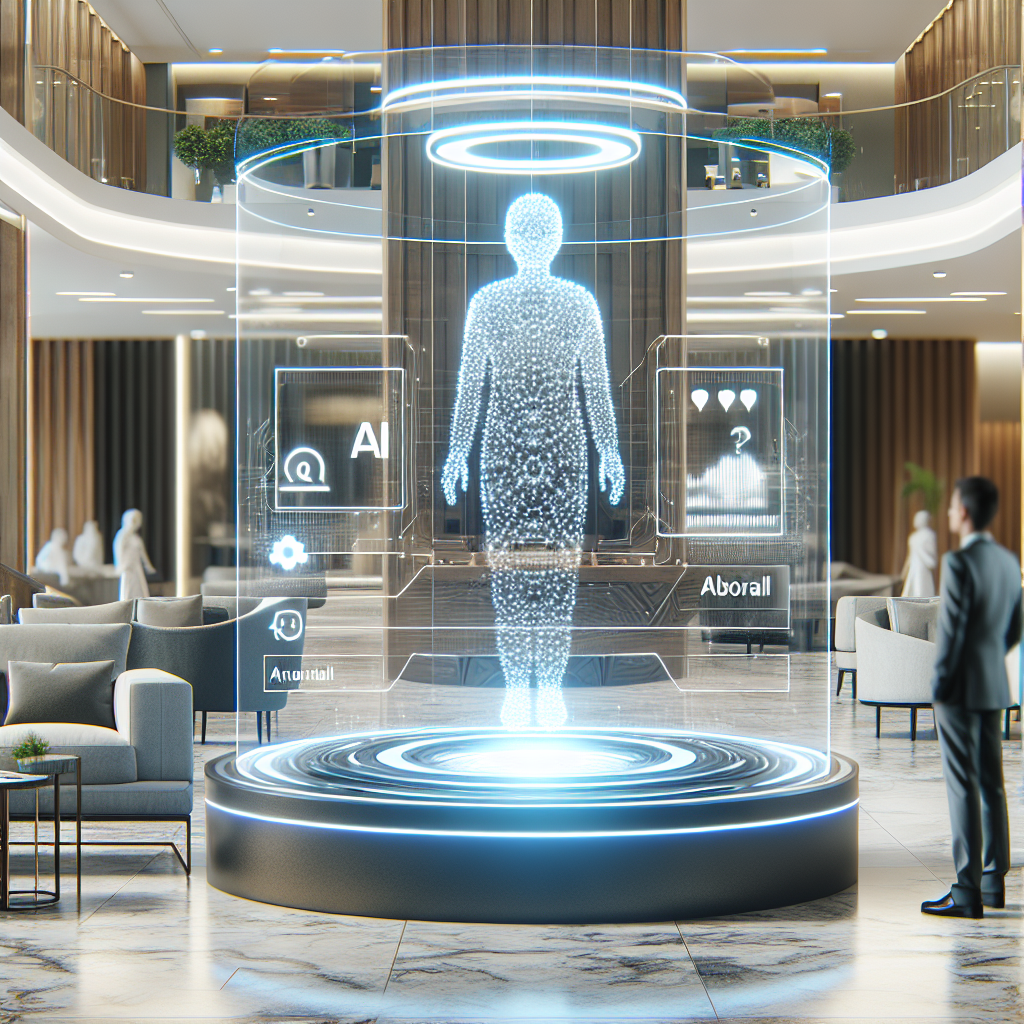The Role of AI in Personalizing the Guest Experience
Artificial Intelligence (AI) has become an integral part of many industries, including the hospitality industry. AI has the potential to revolutionize the way hotels and resorts interact with their guests, providing a more personalized and seamless experience. From booking to check-out, AI can help hotels tailor their services to meet the specific needs and preferences of each guest. In this article, we will explore the role of AI in personalizing the guest experience and how it is shaping the future of hospitality.
Personalized Booking Experience
One of the key ways in which AI is enhancing the guest experience is through personalized booking. AI-powered chatbots and virtual assistants can help guests find the perfect accommodation based on their preferences, budget, and travel dates. These chatbots can provide real-time responses to guest queries, suggest personalized recommendations, and even assist in booking flights and activities.
AI can also analyze guest data and booking patterns to offer personalized promotions and discounts. By understanding each guest’s preferences and past behavior, hotels can create targeted marketing campaigns that are more likely to resonate with their audience. This not only helps hotels increase bookings but also enhances the overall guest experience by providing relevant and timely offers.
Personalized Check-in and Check-out
AI can streamline the check-in and check-out process, making it more efficient and convenient for guests. For example, AI-powered mobile check-in apps allow guests to check in remotely, select their room preferences, and even unlock their room door using their smartphone. This not only saves time for guests but also reduces the workload for hotel staff, enabling them to focus on providing a more personalized service.
Similarly, AI can simplify the check-out process by automatically generating the final bill, processing payments, and sending electronic receipts to guests. This eliminates the need for guests to wait in line at the front desk and speeds up the departure process. By automating routine tasks, hotels can free up staff to focus on delivering a more personalized and attentive service to guests.
Personalized Recommendations and Services
AI can help hotels provide personalized recommendations and services to guests throughout their stay. For example, AI-powered concierge apps can suggest nearby attractions, restaurants, and activities based on the guest’s interests and preferences. These apps can also make reservations, book tickets, and arrange transportation, making it easier for guests to explore the local area.
AI can also enhance the in-room experience by personalizing amenities and services. For example, AI-powered voice assistants can adjust the room temperature, control the lighting, and even order room service with a simple voice command. By anticipating the guest’s needs and preferences, hotels can create a more comfortable and enjoyable stay for their guests.
Personalized Customer Service
AI can improve customer service by providing personalized assistance to guests throughout their stay. AI-powered chatbots can answer guest queries, provide recommendations, and resolve issues in real-time. These chatbots can learn from each interaction to provide more accurate and helpful responses, creating a more personalized and efficient service experience for guests.
AI can also analyze guest feedback and sentiment to identify areas for improvement and address any issues before they escalate. By proactively addressing guest concerns, hotels can enhance guest satisfaction and loyalty, leading to repeat bookings and positive reviews. AI can also personalize the guest experience by sending personalized messages, offers, and surveys to guests during and after their stay, creating a more engaging and memorable experience.
FAQs
Q: Can AI really personalize the guest experience?
A: Yes, AI has the ability to analyze guest data, preferences, and behavior to provide personalized recommendations, services, and promotions. By leveraging AI-powered tools and technologies, hotels can create a more tailored and seamless experience for their guests.
Q: Will AI replace human interaction in the hospitality industry?
A: While AI can automate routine tasks and provide personalized assistance, human interaction remains essential in the hospitality industry. AI can enhance the guest experience by streamlining processes and providing personalized services, but human touch is still crucial for building relationships and delivering exceptional service.
Q: Is AI secure and reliable for handling guest data?
A: AI-powered systems are designed to protect guest data and ensure privacy and security. Hotels must comply with data protection regulations and implement security measures to safeguard guest information. By using trusted AI technologies and following best practices, hotels can ensure the security and reliability of their AI systems.
Q: How can hotels implement AI to personalize the guest experience?
A: Hotels can implement AI by investing in AI-powered tools and technologies, such as chatbots, virtual assistants, and data analytics platforms. By integrating AI into their operations, hotels can personalize the guest experience, streamline processes, and improve customer service.
In conclusion, AI is playing a significant role in personalizing the guest experience in the hospitality industry. From booking to check-out, AI-powered tools and technologies can help hotels tailor their services to meet the specific needs and preferences of each guest. By leveraging AI, hotels can create a more personalized, efficient, and engaging experience for their guests, leading to increased satisfaction, loyalty, and repeat bookings. As AI continues to evolve, the guest experience is set to become even more personalized and seamless, shaping the future of hospitality in exciting new ways.

